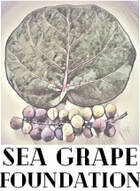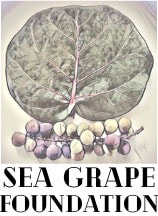Healthy
Providing sustainable, nutritious food sources free of toxic chemicals and sufficient to feed the world’s growing population.
Providing clean air and clean waters.
Providing safe and healthy homes and workplaces.
Enabling a reasonable balance of work and rest to sustain optimal physical and emotional health.
Providing an optimal environment for babies in utero and in the critical first years of development.
Creating scientific solutions for the prevention and cure of diseases and for the promotion of healthy aging.
Alzheimer's Disease
Alzheimer's Disease presents one of the greatest public health challenges of the 21st Century, creating massive suffering, disability, and cost to the economy.
Through a multi-year grant to the Deep Phenotyping Project at Harvard Medical School, extensive biological data was compiled on a population of people with Alzheimer's Disease that examined multiple parameters characterizing the disease and potentially defining subpopulations with different variants of the disorder. This has provided a robust platform for developing models for the development of the disorder and for the discovery and testing of therapeutics.
Through a multi-year grant to the Women's Brain Initiative at Brigham and Women's Hospital, the study of gender differences in the risk, development, and response to treatment of Alzheimer's Disease and other neurodegenerative disorders was begun.
A grant to the Massachusetts Eye and Ear Infirmary supports a study of a unique approach to getting drugs across the blood-brain barrier that could widen the scope of therapeutic agents for Alzheimer's Disease and other central nervous system disorders by enabling larger molecules to penetrate the brain.
Antibiotics
We are facing a crisis in antibiotic resistance to bacterial infections that may be even greater than the threat of viral pandemics. Without robust new antibiotics, drug resistant bacteria could spread unchecked around the world.
The Collins Lab at MIT and the Wyss Institute is seeking rapidly to develop seven new classes of antibiotics that will address the most threatening bacterial pathogens and which will hopefully be less susceptible to the development of antibiotic resistance than existing agents. We have joined with others in supporting this initiative.
We are facing a crisis in antibiotic resistance to bacterial infections that may be even greater than the threat of viral pandemics. Without robust new antibiotics, drug resistant bacteria could spread unchecked around the world.
The Collins Lab at MIT and the Wyss Institute is seeking rapidly to develop seven new classes of antibiotics that will address the most threatening bacterial pathogens and which will hopefully be less susceptible to the development of antibiotic resistance than existing agents. We have joined with others in supporting this initiative.
Covid-19
We are supporting medical research to fight the coronavirus with a grant to Fast Grants, an organization that provides rapid support of cutting edge research that can't wait for usual pace of grant approvals from more conventional funding sources.
We support the work of the Centers for Disease Control with a grant to the Foundation for the CDC that will support its non-partisan mission.
Medecins Sans Frontiers (Doctors without Borders) delivers health care to disadvantaged populations worldwide. Project Echo trains community health workers around the globe to provide the expertise of medical specialists in academic centers.
A grant to the Markham Lab at Johns Hopkins University supports the development of a vaccine that may have more enduring efficacy than the mRNA vaccines that primarily target the spike proteins that are now rapidly mutating. This is intended to be a safety net in case of dwindling efficacy of existing vaccines and new strains of the virus.
We are also supporting initiatives to address social justice disparities in the impact of the virus on minorities and the poor. The Harlem Children's Zone provides Covid-19 relief and recovery to inner city children in Harlem and six other US cities.
We are supporting medical research to fight the coronavirus with a grant to Fast Grants, an organization that provides rapid support of cutting edge research that can't wait for usual pace of grant approvals from more conventional funding sources.
We support the work of the Centers for Disease Control with a grant to the Foundation for the CDC that will support its non-partisan mission.
Medecins Sans Frontiers (Doctors without Borders) delivers health care to disadvantaged populations worldwide. Project Echo trains community health workers around the globe to provide the expertise of medical specialists in academic centers.
A grant to the Markham Lab at Johns Hopkins University supports the development of a vaccine that may have more enduring efficacy than the mRNA vaccines that primarily target the spike proteins that are now rapidly mutating. This is intended to be a safety net in case of dwindling efficacy of existing vaccines and new strains of the virus.
We are also supporting initiatives to address social justice disparities in the impact of the virus on minorities and the poor. The Harlem Children's Zone provides Covid-19 relief and recovery to inner city children in Harlem and six other US cities.
Stroke Rehabilitation
Kessler Foundation is dedicated to developing innovative approaches to the treatment of disabilities. One area of specialization is stroke rehabilitation. Nearly 800,000 strokes occur in the US annually and one in four Americans will experience a stroke in their lifetime. Disabilities from stroke can be sudden and severe. One crucial, highly prevalent, and understudied stroke symptom is spatial neglect, an inattention to half of space as if things in that realm don't exist. Improving spatial neglect and awareness can significantly improve functional recovery, reduce the risk of falls, and help people regain the ability to participate fully in everyday activities. A grant to Kessler Foundation supports Dr. Peii Chen's groundbreaking work addressing spatial neglect using virtual reality.
Kessler Foundation is dedicated to developing innovative approaches to the treatment of disabilities. One area of specialization is stroke rehabilitation. Nearly 800,000 strokes occur in the US annually and one in four Americans will experience a stroke in their lifetime. Disabilities from stroke can be sudden and severe. One crucial, highly prevalent, and understudied stroke symptom is spatial neglect, an inattention to half of space as if things in that realm don't exist. Improving spatial neglect and awareness can significantly improve functional recovery, reduce the risk of falls, and help people regain the ability to participate fully in everyday activities. A grant to Kessler Foundation supports Dr. Peii Chen's groundbreaking work addressing spatial neglect using virtual reality.
Toxins in the Environment
Healthy Babies Bright Futures is devoted to identifying and mitigating environmental toxins that crucially impact in utero development and the development of infants, particularly cognitive development, in their most formative years of life. Toxins in drinking water, the household environment, foods and their containers differentially impact the poor and threaten to widen the economic divide in future generations.
Healthy Babies Bright Futures is devoted to identifying and mitigating environmental toxins that crucially impact in utero development and the development of infants, particularly cognitive development, in their most formative years of life. Toxins in drinking water, the household environment, foods and their containers differentially impact the poor and threaten to widen the economic divide in future generations.
Water and Sanitation
The availability of clean water for drinking and washing and effective facilities for sanitation are crucial to preventing the spread of infectious diseases in underdeveloped nations. Running water is a rarity in the Third World. In many communities, it is common to walk miles to fetch and haul water for daily use, which also interferes with employment and children's education.
Water for People is devoted to providing clean and convenient water, and reliable sanitation to people around the world. Their goal is to provide these things we take for granted to everyone forever in the countries they serve. Their model partners with the people to enable them to become self-sufficient in maintaining the systems they establish. We are pleased to partner with Water for People in their Rwanda Everyone Forever mission.
The availability of clean water for drinking and washing and effective facilities for sanitation are crucial to preventing the spread of infectious diseases in underdeveloped nations. Running water is a rarity in the Third World. In many communities, it is common to walk miles to fetch and haul water for daily use, which also interferes with employment and children's education.
Water for People is devoted to providing clean and convenient water, and reliable sanitation to people around the world. Their goal is to provide these things we take for granted to everyone forever in the countries they serve. Their model partners with the people to enable them to become self-sufficient in maintaining the systems they establish. We are pleased to partner with Water for People in their Rwanda Everyone Forever mission.
Ukraine
The war in Ukraine has created a health emergency for its 40 Million people. Its health system is severely stressed and on the verge of collapse. People no longer have access to medications and essential health services, which have been compromised by damaged infrastructure and mobility risks that limit access to care. Trauma, both physical and psychological, is placing demands on surgical and mental health services. And communicable diseases, including COVID and others, are on the rise. Refugees who have escaped to neighboring countries also face unprecedented health risks and needs.
The World Health Organization Foundation is uniquely positioned to address this crisis, both for Ukrainians still in country and for refugees. They are providing emergency care for injured patients, essential medical supplies, and infrastructure support for hospitals and health care facilities. They are assessing the health impact of the war, including the changing landscape of infectious diseases. And they are coordinating the international response.
While these efforts are partly funded by governments, there is a significant funding gap that must be met by private philanthropy in order to ensure the continuity of health care for this beleaguered population.
The war in Ukraine has created a health emergency for its 40 Million people. Its health system is severely stressed and on the verge of collapse. People no longer have access to medications and essential health services, which have been compromised by damaged infrastructure and mobility risks that limit access to care. Trauma, both physical and psychological, is placing demands on surgical and mental health services. And communicable diseases, including COVID and others, are on the rise. Refugees who have escaped to neighboring countries also face unprecedented health risks and needs.
The World Health Organization Foundation is uniquely positioned to address this crisis, both for Ukrainians still in country and for refugees. They are providing emergency care for injured patients, essential medical supplies, and infrastructure support for hospitals and health care facilities. They are assessing the health impact of the war, including the changing landscape of infectious diseases. And they are coordinating the international response.
While these efforts are partly funded by governments, there is a significant funding gap that must be met by private philanthropy in order to ensure the continuity of health care for this beleaguered population.

